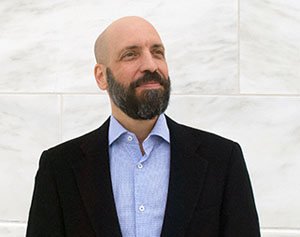Some farmers may have to start preparing for higher taxes if Joe Biden takes office, but much depends on the outcome of the elections — in particular, whether the Democrats also can take the Senate and retain the House, which could provide the party the political boost to make big changes.
Despite the uncertainty, there’s still concern that some aspects of Biden’s tax plan would threaten the ability of farm families to pass farms down to the next generation.
For example, Biden has indicated a desire to eliminate what’s called the “step-up in basis,” which allows inherited assets to get a new tax cost equal to fair market value upon death, instead of on the gains realized since the assets were first purchased.
In a response to questions posed by the American Farm Bureau Federation, Biden did not go into much detail about his tax plan, saying his administration would “work with Congress to implement a fair, permanent tax code that provides certainty to plan for the future, while abolishing incentives that reward companies for offshoring production or avoiding taxes by using tax havens.”
In addition, he said he would raise the corporate tax rate to 28% and roll back “the Republicans’ massive $1.3 trillion giveaway to corporations” in order to put small businesses “on equal footing with large corporations.”
He and vice presidential candidate Kamala Harris also have pledged not to raise taxes on anyone making less than $400,000 per year. Biden’s tax plan is here and his rural plan is here.
But several analysts have dug deeper into specific proposals, such as Biden’s plan to eliminate a step up in basis on assets.
“Under present law, inherited property receives a full fair market value tax basis,” the financial website Investopedia notes. “As a result, if the property has appreciated in value since its acquisition by the decedent, the inherent increase in the property’s value as of its owner’s death permanently escapes capital gains tax. If the heir subsequently sells the property, the heir’s taxable gain will be limited to the increase in value over the stepped-up tax basis.”
Put more simply, says Paul Neiffer, a certified public accountant with CLA in Washington state, “Step-up means when you pass away, all your assets get stepped up to fair market value.”

Paul Neiffer, CLA
Currently, a farmer who dies with $5 million worth of assets such as equipment sees those assets get stepped up to fair market value. Under Biden's proposal, if there's a capital gains tax at death, taxes on all $5 million have to be paid right away, Neiffer says.
“It will be difficult to keep your business or farm in the family if the Biden scheme forces it to be liquidated to pay the death taxes,” Philip DeMuth, author of “The Overtaxed Investor: Slash Your Tax Bill and Be a Tax Alpha Dog,” wrote in the Wall Street Journal in July. “If the gains are forwarded to the next generation, they may need decades of accounting records to establish a cost basis.”
But repealing the step-up in basis “almost exclusively affects taxpayers in the top 20 percent,” the Tax Foundation says.
Biden, says Neiffer, is really going after the super-wealthy, such as Amazon founder and CEO Jeff Bezos, “the billionaires out there that when they pass away, they might pay inheritance tax, but they get a step up in basis,” Neiffer says.
Biden also would try to reduce the Estate Tax exemption from its current threshold of about $11.6 million to about half that, but that’s not expected to have a big impact on farmers.
But a sharp increase in capital gains and imposing that tax at death could result in a big hit for some growers, Neiffer says, adding, “There really is nothing about the Biden plan that is helpful for farmers that I can see.”
As an example, he cites dairy farmers. “A lot of them pay capital gains on their raised breeding stock at a very preferential rate of no more than 20%,” Neiffer says. “That would suddenly be back to being 39.6% for a top rate.”
On the other side of the issue, Eric Deeble, policy director of the National Sustainable Agriculture Coalition, acknowledges the concerns about the capital gains increase and the elimination of the step-up in basis, but adds that there are “a bunch of things that I think get left out of the conversation,” such as making more investment capital available in rural communities and reshoring jobs.
Interested in more coverage and insights? Receive a free month of Agri-Pulse.
“There’s been an extraordinary amount of disinvestment in rural communities,” Deeble said. “Almost all of the investment, private capital investment that's happened over the last 10 to 15 years has gone to seven or eight metro areas on the coast.”
“In the ag space, it's a potentially mixed bag," he added, "and obviously, since it would take congressional action to change tax policy, it remains to be seen what [Biden] would be able to accomplish.”

Eric Deeble, NSAC
Neiffer says, however, that if Democrats are able to win the White House, retain the House, and retake the Senate, such proposals are “more and more realistic” than they have been in the past.
Asked whether Biden might propose tax exemptions to lessen the impact on farmers, Neiffer says “maybe on the farm side there'll be some exemptions. I don't think it's going to be a full exemption” from new taxes.
Deeble also said he didn’t think the long-term capital gains rate increase would affect many farmers because they generally don’t have enough capital gains to qualify for the highest rate, currently 20% for gains above $496,600 for a married couple filing jointly.
He also says that “any time you start going into tax policy that affects intergenerational transition,” people generally look at what the current landowner will lose.
But “particularly in an era of hyper-concentrated and consolidated agriculture,” that's not “the entirety of the equation,” he says. “You’ve got to look at all the people who are trying to get into farming.”
But that can’t happen “if there's only a handful of farmers on many tens of thousands of acres. So maybe a tax policy that incentivizes having more smaller folks get into this might actually help to really restore” rural communities, Deeble says.
As for its impact on the election, Biden’s tax plan probably doesn’t make much difference at this point. with voting already begun and more than 90% of voters already decided on their vote.
“This is not going to change anybody's mind one way or another,” Neiffer said.
For her part, Pam Johnson, speaking for the Biden campaign at a Farm Foundation Forum Tuesday, said it's "not true" that Biden would "raise taxes on everybody from day one." She pointed to Biden's pledge to only target tax increases on those making more than $400,000 per year and also noted the role of Congress in the tax policy discussion.
“We need many things as farmers," Johnson, an Iowa farmer and former president of the National Corn Growers Association, said. "We need tax policy to make it easier for farmers to retire and for new farmers to begin, and we will be paying attention and advocating for all those positions. I think ... to speculate what’s going to be the tax policy or the tax reform in 2023 is speculation."
For more news, go to www.Agri-Pulse.com


